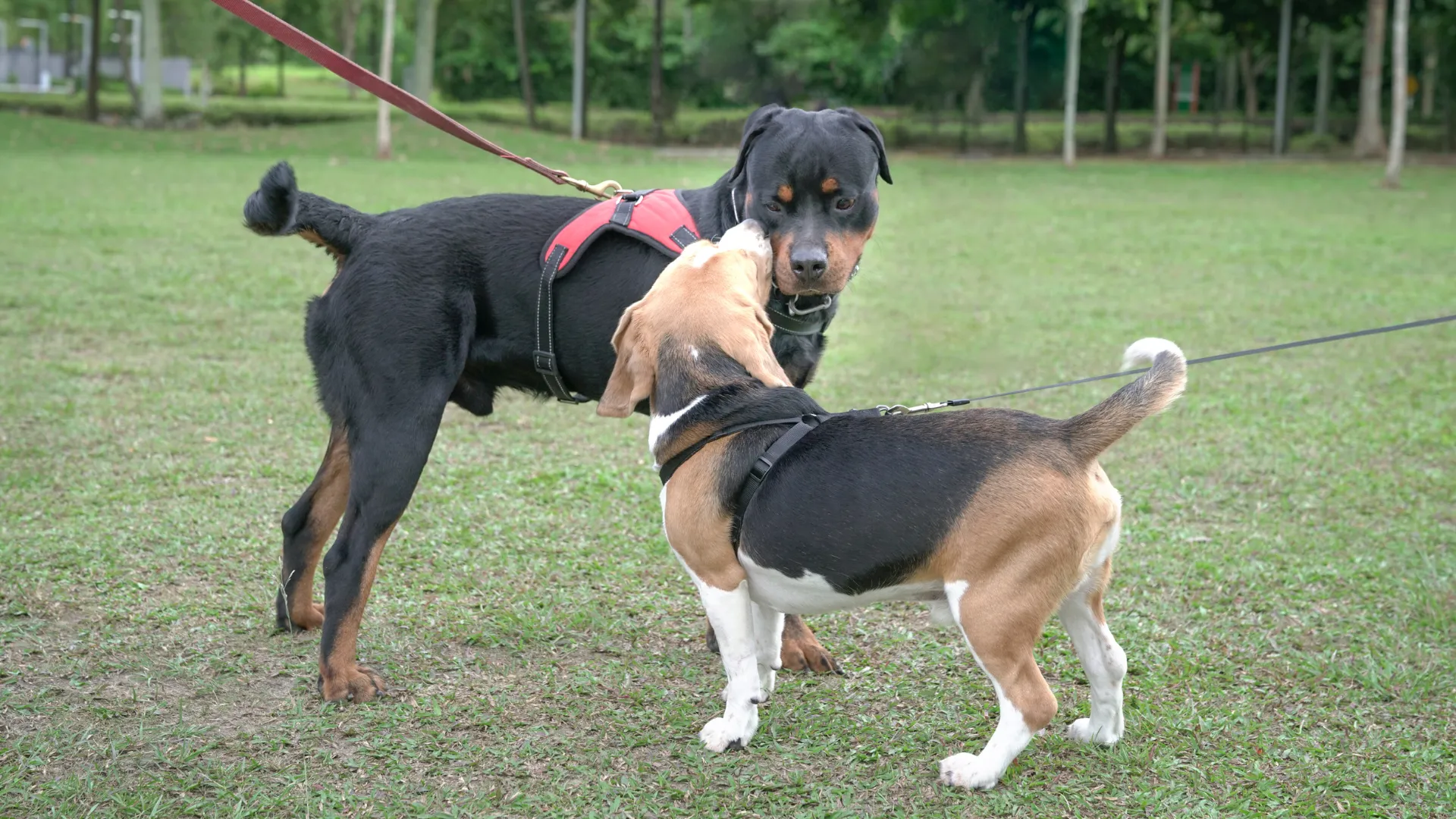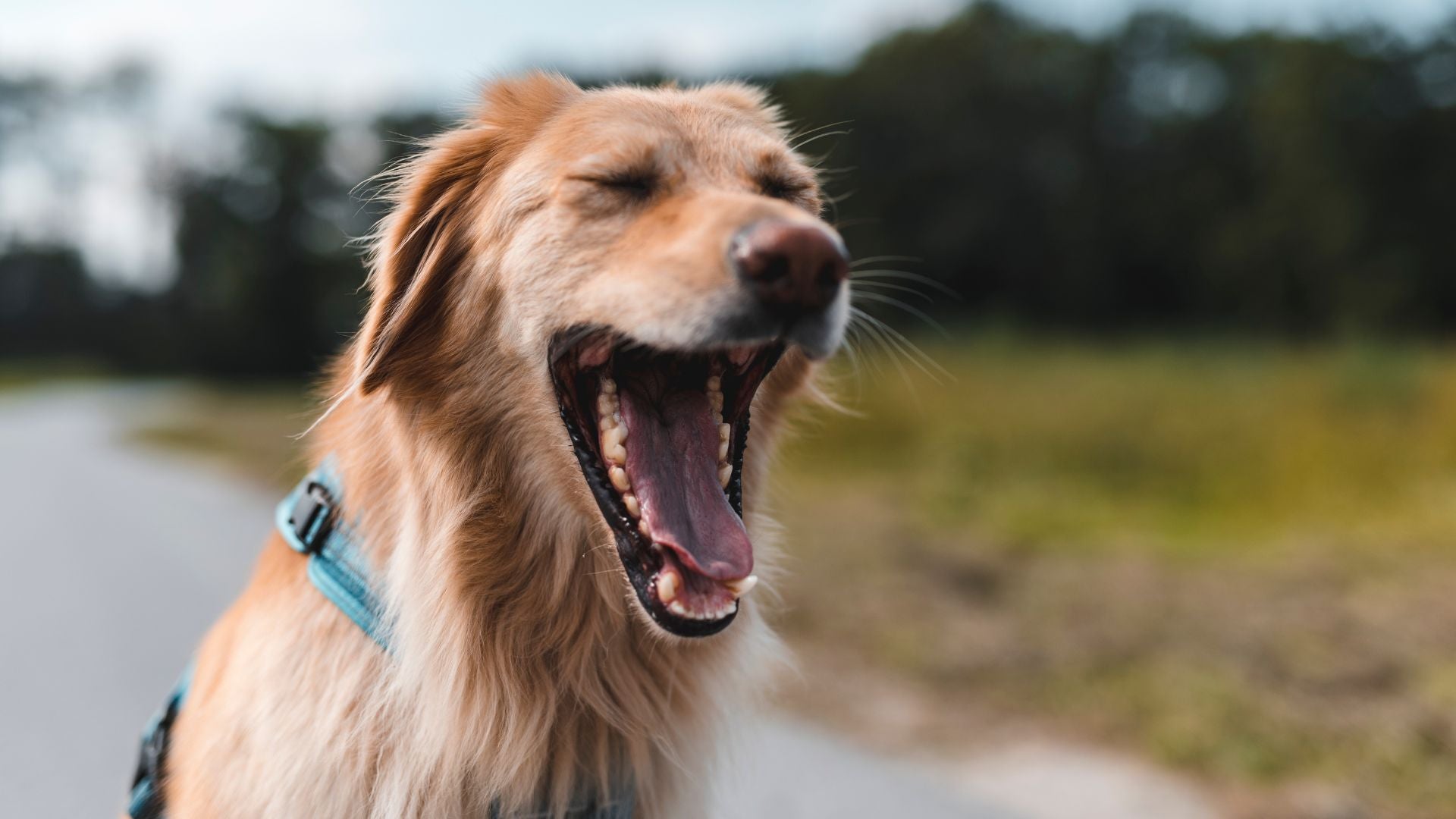Pet owners warned after rise in dog attacks
Dog attacks in the Sunshine Coast region are up 10 per cent. Pet owners are urged to follow some fundamental steps to reduce incidents and improve safety of people and pets.

Owners are being encouraged to ensure their dogs are property restrained and enclosed after a significant increase in attacks on the Sunshine Coast.
In the 2023-24 financial year, dog attacks in the region were up more than 10 per cent on the previous year.
A total of 382 dog attacks were reported – 166 on people and 216 on another animal.
Following the rise, Sunshine Coast Council is urging pet owners to follow some fundamental steps to reduce incidents and improve safety of people and pets.
This comes as the Queensland Government rolls out tougher dog laws, which become effective on July 31.
Service Excellence Portfolio Councillor Winston Johnston said owners needed to consider their responsibilities, including walking dogs on a leash and making sure they were appropriately restrained.
“One of the most common locations for dog attacks on the Sunshine Coast is directly outside the property where a dog resides, as a result of the dog escaping from an unsecured door, gate or garage,” Cr Johnston said.
“The incidents we are seeing are often due to owners being complacent because they don’t think their dog will attack.
“Unfortunately, if an animal is put in a situation where it is startled or uncomfortable the unexpected can happen very quickly.”
Animal Emergency Services Clinical Director Dr Danielle Huston said dogs attacked for various reasons and it was not just about their breed or history.
“Just like humans, dogs communicate their emotions in a variety of ways,” Dr Huston said.
“They may be completely gentle most of the time, but they still have animal instincts and sharp teeth.
“Protecting their territory, feeling anxious or being in pain may cause an otherwise friendly dog to act out of character.
“Some dogs get overwhelmed quickly. A common cause of bite injuries is when one excited dog runs straight up to another dog and 'gets in their face'.
“Just like humans, suddenly having someone right in your space, who you don't know, can be super intimidating and the reaction of a growl or bite is understandable.
“Looking out for certain behaviours can help prevent frightening incidences before they happen.
“For instance, a dog that is anxious may tense their body, lick their lips or yawn.
“If you see these signs, you can take action such as crossing the street.
“Although the reality is that these signs are not always easy to spot.
“The simplest way to avoid attacks is remembering some basic responsible pet ownership guidelines.”

Top tips for responsible pet ownership
- Lock the gate: Make sure your dog is contained. Consider a spring-loaded, self-closing gate and check the fence for gaps. If you are opening the door or garage be sure your dog cannot get out.
- Leash, tag, and bag before you walk: Your dog must always be kept on a lead, unless in an off-leash area. If in doubt – keep your dog on a leash and stay on the path until you can check the information for the area.
- Share the space, keep each other safe: We all share the same foot paths, cycle paths and open spaces. Keep your dog close and on-leash. If your dog gets excited with passing bikes or scooters, move to the side while they pass.
- Supervise children and pets: children must be supervised when in the company of dogs at all times. Many of the attacks on children are the family pet.
- Give wildlife some space: The Sunshine Coast is home to more than 700 native animals and we all have a responsibility to care for them. If our dogs don’t have the necessary wildlife avoidance training, they can kill or harm other animals.
Tougher State enforced dog laws from July 31
These reminders are timely with the rolling out of tougher dog laws by the Queensland Government from July 31.
Changes include increased penalties and even jail time possible for serious attacks.
The Queensland Government has updated the penalty for not effectively controlling your dog in a public place. An on-the-spot fine will increase to $806. This includes having a dog off-leash in an on-leash area. Or, if the dog is in an off-leash area, the owner must be able to control the dog using voice command.
Want to learn more about responsible pet ownership?
Sunshine Coast Council had created a valuable variety of teaching tools and resources to encourage responsible pet ownership messages for families and educators.
These will help dog owners understand their responsibilities, including walking on a leash, entering an off-leash park and sharing space.
What to do if you witness an attack
Sunshine Coast Council encourages residents to follow the below advice in reporting a dog attack incident:
- Contact Council to report the incident as soon as possible. Describe the dog and any registration or owner details. Provide adequate details so the matter can be investigated.
- Advise Council if the animal is still at large so council can try to impound it to ensure it doesn’t cause more injuries.
- Get treatment from a doctor or vet. Ask the doctor or vet for a statement of attendance that records your visit.
- Take photographs of any injuries.
- Write a statement of events while the incident is fresh in your mind.
All reported dog attack incidents are investigated under the Queensland Government Animal Management (Cats and Dogs) Act and, where appropriate, dogs may be regulated dangerous or menacing, which places additional conditions on owners to ensure their animals are safely managed and the community is protected from the dog’s aggressive behaviour in future.
